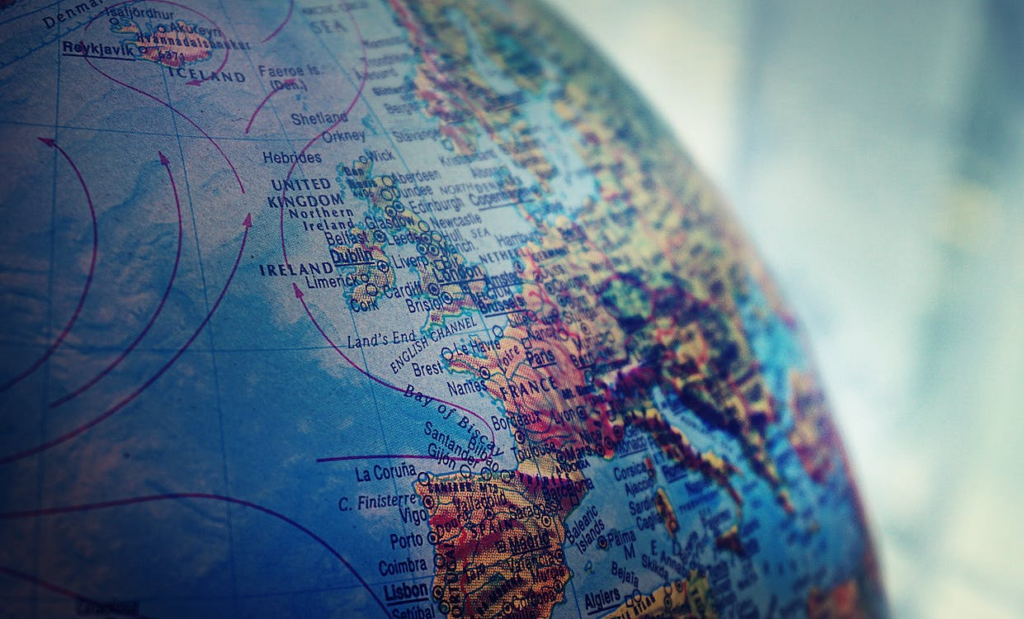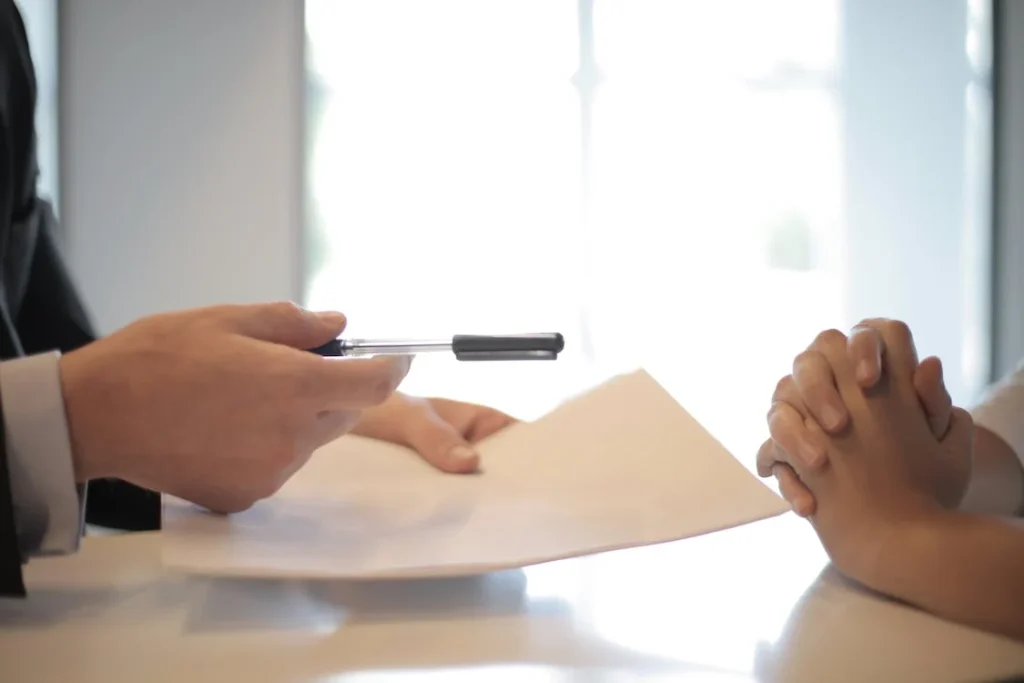The Freedom of Press Clause, nestled within the First Amendment to the United States Constitution, is a testament to the founding fathers’ foresight into the necessity of a well-informed citizenry for the sustenance of a democracy. The clause succinctly states that “Congress shall make no law… abridging the freedom of speech, or of the press.” This legal provision is more than just black letter law; it’s the bedrock of democratic discourse, ensuring that the government remains transparent, accountable, and always under the scrutinizing eye of the citizenry.
The essence of the Freedom of Press Clause is to prohibit governmental interference in the dissemination of information and ideas. Its objective goes beyond mere regulation of a profession; it aims to cultivate an environment where the truth can flourish, unencumbered by the shackles of censorship. In doing so, it empowers the press to fulfill its role as the disseminator of information, the watchdog of the government, and the forum for public discourse.
The significance of the press in a democratic society cannot be overstated. As the primary conduit of information, the press has the monumental task of educating the public on a wide array of issues, from government policies to social injustices. The knowledge imparted by the press shapes public opinion, informs voting decisions, and stirs the societal conscience.
Moreover, the press assumes a watchdog role, where investigative journalism unveils the veils of corruption, abuse of power, and other wrongdoings that may lurk in the corridors of power. Through relentless inquiry and exposure, the press holds the powerful to account, fostering a culture of accountability and integrity.
Furthermore, the press serves as a vibrant forum for public discourse. It provides a platform where ideas and opinions are exchanged, debated and refined. This crucible of democratic deliberation is where societal norms are challenged, policies scrutinized and the public consciousness elevated.
The Freedom of Press Clause is not merely a legal provision, but a living, breathing embodiment of democratic ideals. It underscores the indelible link between an uninhibited press and a flourishing democracy.
Historical Overview

The trajectory of the Freedom of Press Clause is a riveting tale of how societies began to appreciate the indispensable role of a free press in fostering democracy and ensuring governmental accountability. Its roots can be traced back to the early democratic societies, where the nascent concept of press freedom began to take shape. Over the centuries, this concept has evolved, faced challenges and emerged as a cardinal principle in modern democratic governance.
Origin of the Freedom of Press in early democratic societies:
1. Ancient Greece and Rome: The origins of free expression can be traced back to ancient civilizations where public discourse and open debate were valued. However, the concept of a free press as we understand it today was still very much early.
2. 17th Century England: The struggle for press freedom began to gain momentum in 17th century England, with the abolition of the Licensing Order of 1644, which marked a pivotal moment in the fight against state censorship.
3. American Colonies: The colonial press played a crucial role in galvanizing public opinion against British rule, setting the stage for the inclusion of the Freedom of Press Clause in the U.S. Constitution.
Evolution of press freedom over the centuries:
1. 19th Century: The 19th century saw an expansion of press freedom with the abolition of stamp duties and other restrictive measures, enabling the press to reach a wider audience.
2. 20th Century: Press freedom was further entrenched through landmark legal judgments like Near v. Minnesota (1931) and New York Times Co. v. United States (1971), which upheld the principle of a free press against governmental interference.
3. Global Spread: The 20th century also witnessed the global spread of press freedom ideals, encapsulated in international instruments like the Universal Declaration of Human Rights (1948).
The journey of the Freedom of Press Clause from its early stages in ancient civilizations to its robust position in modern democratic societies is a testament to the indomitable spirit of human inquiry and the ceaseless quest for truth. This historical odyssey lays the foundation for understanding the modern interpretation of the Freedom of Press Clause, its challenges and its enduring significance in our society. Through the lens of history, we are better equipped to appreciate the hard-fought battles that have contributed to the press freedom we enjoy today and the responsibilities that come with this freedom in fostering a just and informed society.
Modern Interpretation of the Freedom of Press Clause

The modern interpretation of the Freedom of Press Clause has been significantly shaped by legal landmarks and notable court cases. These judicial rulings have not only affirmed the vital role of the press but have also set the parameters within which it operates. Moreover, a comparative analysis with other democratic nations sheds light on the unique American perspective toward press freedom.
Legal Landmarks and Notable Court Cases:
- Near v. Minnesota (1931): This precedent-setting case cemented the doctrine of prior restraint, emphasizing that government censorship before publication is unconstitutional, thereby fortifying the press against undue interference.
- New York Times Co. v. United States (1971): Known as the “Pentagon Papers” case, this landmark ruling underscored the importance of a free press in holding the government accountable, even in the face of national security concerns.
- Hazelwood School District v. Kuhlmeier (1988): This case highlighted the limitations of press freedom in certain settings, such as school newspapers, indicating the nuanced approach towards the Freedom of Press Clause.
Comparison with Press Freedom in Other Democratic Nations:
- Constitutional Provisions: Unlike the United States, many democratic nations have distinct constitutional provisions for freedom of speech and freedom of the press, reflecting varying emphasis on these freedoms.
- Press Regulation: Some democracies have established regulatory bodies to oversee the press, striving for a balance between freedom and responsibility.
- Defamation Laws: The approach towards defamation laws varies significantly, with some nations having stricter laws that may impact press freedom.
The American jurisprudence on the Freedom of Press Clause has set a strong precedent for many democracies around the world. Through a series of landmark judgments, the U.S. judiciary has underscored the pivotal role of a free press in fostering a transparent and accountable government. Moreover, the comparative analysis illuminates the diverse approaches towards press freedom, underscoring the delicate balance between freedom and responsibility.
This modern interpretation lays the foundation for understanding the contemporary challenges facing the press and the continual evolution of the Freedom of Press Clause in the digital age. Through an exploration of legal landmarks and a comparative lens, we delve deeper into the essence of press freedom and its indispensable role in modern democratic societies.
The Press as the Fourth Estate

The moniker “The Fourth Estate” is a lofty one, placing the press on a pedestal alongside the three branches of government. This title underscores the press’s role as a watchdog and a cornerstone of democratic society, holding the government’s feet to the fire and fostering a culture of transparency and accountability. In a functioning democracy, the press acts as a check against the abuse of power, an auditor of governmental actions, and a platform where the voice of the people can be heard.
Oversight and Critique of Government Actions:
1. Monitoring Government: Through diligent reporting, the press monitors the actions of the government, bringing to light policies, decisions, and actions that may impact the citizenry.
2. Critique and Analysis: Beyond mere reporting, the press delves into analysis and critique, providing a nuanced understanding of government actions and their implications.
3. Encouraging Transparency: By probing into governmental affairs, the press encourages a culture of transparency, compelling government officials to be accountable for their actions.
Exposing Corruption and Promoting Transparency:
1. Investigative Journalism: The rigorous work of investigative journalists often unveils corruption, malpractice, and other unethical behaviors within both the public and private sectors.
2. Promoting Ethical Governance: By exposing corruption, the press promotes ethical governance and builds public trust in institutions.
3. Advocacy for Open Governance: The press often advocates for open governance practices, such as freedom of information laws, that further the cause of transparency and accountability.
The role of the press as the Fourth Estate is an enduring testament to the vision of a free and open society. It epitomizes the symbiotic relationship between an informed citizenry and a transparent government. Through rigorous oversight and an unyielding quest for truth, the press aids in maintaining a balance of power, ensuring that the government remains a servant of the people, not a master. This role is not only a privilege but a solemn duty that underscores the essence of democratic governance.
By exposing the underbelly of corruption and promoting a culture of openness, the press contributes significantly to the health and vibrancy of a democratic society, reaffirming the profound wisdom embedded in the Freedom of Press Clause.
Challenges and Criticisms

The Freedom of Press Clause, while robust, navigates a landscape fraught with challenges and criticisms. Balancing national security interests with the freedom of the press is a perennial issue, while the rise of misinformation in the digital age presents a fresh set of challenges. Analyzing these issues helps in understanding the dynamic terrain the press operates within.
Balancing National Security and Press Freedom:
- Leaks and National Security: Instances of leaked sensitive information pose a challenge to balancing press freedom with national security concerns.
- Governmental Secrecy: Governments often cite national security to justify secrecy, yet this can be at odds with the press’s duty to inform the public.
- Legal Boundaries: Defining the legal boundaries between national security and press freedom continues to be a nuanced and contentious issue.
The Rise of Misinformation and its Impact on Press Freedom:
- Digital Disinformation: The proliferation of false information oe fake news online challenges the credibility of legitimate news outlets and undermines public trust.
- Social Media: Social media platforms have become conduits for misinformation, which complicates the press’s role in providing accurate information.
- Press Responsibility: The onus on the press to maintain high journalistic standards amidst a sea of misinformation is greater than ever.
These challenges underscore the fragile equilibrium between maintaining a free press and addressing contemporary concerns like national security and digital misinformation. While the Freedom of Press Clause provides a strong legal framework, the evolving challenges necessitate a continuous dialogue among policymakers, the press, and the public to ensure that the spirit of the clause is upheld.
The press’s ability to adapt to these challenges while maintaining its core function of truthful reporting is critical for preserving the integrity of democratic discourse. The scrutiny of these challenges also offers a pathway towards evolving solutions that uphold the principles of press freedom while addressing the exigencies of modern society.
The Press in the Digital Age

The advent of the digital age has dramatically altered the landscape in which the press operates. The emergence of online journalism and social media has expanded the avenues through which information is disseminated and consumed. This transformation poses both opportunities and challenges for the press and necessitates a re-evaluation of the regulatory framework governing press freedom.
Emergence of Online Journalism and Social Media:
- Expanded Reach: Online platforms have exponentially expanded the reach of the press, allowing for a global audience and instant dissemination of information.
- Citizen Journalism: The digital realm has democratized information dissemination, enabling citizen journalism and a plethora of voices contributing to public discourse.
- Social Media as a News Source: Social media platforms have become significant sources of news, changing the way individuals interact with and consume news.
The Changing Landscape of Press Regulation:
- Online Regulation: The shift to digital platforms necessitates a reconsideration of how press regulation is approached to ensure that the principles of press freedom are upheld.
- Combatting Digital Misinformation: The digital age has seen a surge in misinformation and fake news, challenging regulatory bodies to find ways to maintain credibility and accuracy in journalism.
- Privacy and Data Protection: The intersection of digital journalism with privacy and data protection laws presents a new frontier of challenges for both the press and regulators.
The transition into the digital age heralds a new era for the press, laden with both promise and predicaments. The metamorphosis from traditional print and broadcast media to digital platforms has disrupted established norms and necessitated a fresh discourse on the application of the Freedom of Press Clause in this digital milieu.
As the press navigates this uncharted territory, the enduring principles in the Freedom of Press Clause serve as a compass, guiding the quest for truth, transparency, and accountability.
Future Implications
As society advances, the interaction between the press and democratic governance is bound to evolve. The Freedom of Press Clause, while steeped in history, will continue to be a crucial framework within which this evolution occurs.
Potential Legal and Societal Challenges:
- Evolving Legal Landscape: Future legal interpretations and legislation could redefine the boundaries of press freedom, especially in the face of technological advancements and global crises.
- Ethical Dilemmas: The press may encounter new ethical dilemmas, such as the use of artificial intelligence in news creation and dissemination, that challenge traditional journalistic values.
- Societal Trust: Building and maintaining societal trust amidst a rapidly changing information landscape will be a significant challenge for the press.
The Evolving Role of the Press in Fostering Democratic Discourse:
- Adapting to Technological Innovations: The press will need to adapt to technological innovations while maintaining its core function of providing accurate and impartial information.
- Engaging with the Public: The press may need to find new ways to engage with the public and foster a constructive dialogue to uphold the principles of democratic discourse.
- Collaborative Journalism: The future might see more collaborative efforts between traditional media outlets, independent journalists, and citizen journalists to ensure a well-rounded discourse.
The future holds a complex array of opportunities and challenges for the press. The enduring essence of the Freedom of Press Clause will continue to be a guiding light, ensuring that the press adapts while staying true to its fundamental role as a pillar of democracy. Through a forward-looking lens, we can envisage a dynamic interaction between the press, the public, and the government, underpinned by the timeless principles of press freedom enshrined in the Constitution.
Conclusion
The journey through the historical evolution, legal interpretations, modern-day challenges and the anticipated future of the Freedom of Press Clause elucidates its foundational significance in the democratic fabric of the United States. The role of the press as a watchdog, an informer and a forum for public discourse is not just a tradition but a necessity for the sustenance of a vibrant democracy.
The Enduring Importance of the Freedom of Press Clause:
- Safeguarding Democracy: The Freedom of Press Clause continues to be a bulwark against governmental overreach, promoting transparency, accountability, and informed citizenry.
- Navigating Future Challenges: As society ventures into new frontiers, the principles enshrined in the Freedom of Press Clause provide a compass for navigating the complex terrain of press freedom.
- Fostering Informed Discourse: The press, under the aegis of the Freedom of Press Clause, will continue to be a catalyst for fostering informed public discourse, crucial for the healthy functioning of democracy.
The Freedom of Press Clause is not merely a historical artifact, but a living, breathing embodiment of democratic ideals. Its significance will only become more profound as society grapples with the evolving challenges and opportunities of the 21st century. The press, armed with the constitutional shield of the Freedom of Press Clause, is poised to continue its vital role in nurturing an informed citizenry, holding power to account, and enriching the democratic discourse. Through a deep understanding of this fundamental clause, society is better positioned to appreciate the indispensable role of the press in shaping a just, open, and progressive society.
Further Reading
The following resources provide deeper insights into the topics discussed and span a range of materials including books, articles, and online resources that offer a comprehensive understanding of the Freedom of Press Clause and its implications.
Books:
- “Freedom for the Thought That We Hate: A Biography of the First Amendment” by Anthony Lewis
- “The Free Press Crisis of 1800: Thomas Cooper’s Trial for Seditious Libel” by Peter Charles Hoffer
Online Resources:
- The Reporters Committee for Freedom of the Press: (www.rcgp.org) – An online resource offering a plethora of information on press freedom issues.
- The First Amendment Center: (www.freedomforum.org) – Provides a wide range of resources on the First Amendment and its clauses.
Legal Documents and Court Cases:
- Oyez: (www.oyez.org) – A digital archive of Supreme Court cases, including those pivotal to the interpretation of the Freedom of Press Clause.
- The Legal Information Institute: (www.law.cornell.edu) – Offers access to court cases and other legal resources pertinent to press freedom.
International Resources:
- Reporters Without Borders: (www.rsf.org) – Provides global insights on press freedom issues.
Committee to Protect Journalists: (www.cpj.org) – An organization dedicated to the global defense of press freedom.

